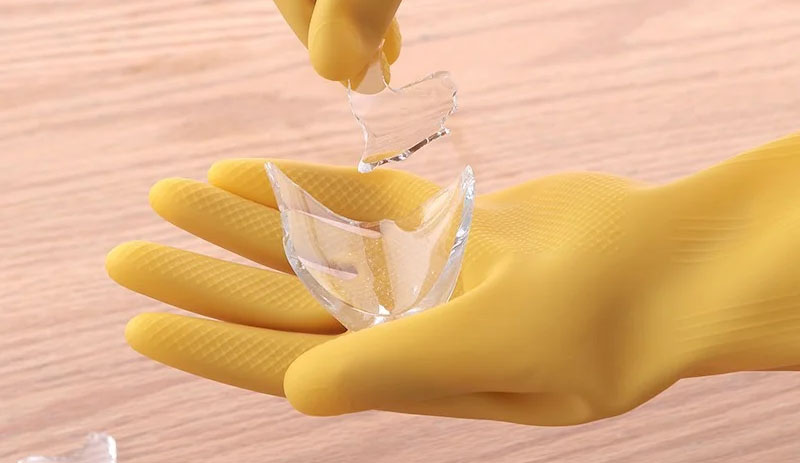Pros & Cons of Neoprene and Other Rubber Gloves
Author:Gloves Addtime:2025-09-08 16:40:23 Click:
Rubber gloves are common hand protective items in our daily lives and come in many varieties. They can be categorized by material, including natural latex gloves, nitrile rubber gloves, natural rubber gloves, PVC (polyvinyl chloride) gloves, PVA ( polyvinyl alcohol ) gloves, butadiene rubber gloves, and butyl
rubber gloves. Let`s talk about pros and cons of the following types of rubber gloves.
Natural Latex Gloves
Generally speaking, natural latex offers excellent protection against aqueous solutions, such as acids and alkalis. Its advantages include comfort, good elasticity and flexibility.
Applications and Advantages. They offer excellent non-slip grip and good thermal insulation, making them suitable for oil-free environments. They offer good protection against water-based chemicals, such as alcohols and acidic & alkali solutions. Meanwhile they are comfortable, elastic, resistant to tearing, punctures, abrasion and cuts.
Disadvantages: They offer poor protection against organic solvents and are not oil-resistant. Some people with latex protein allergies should not use them.
Nitrile Rubber Gloves
Nitrile offers excellent protection against oils, fats, petrochemicals, lubricants and various solvents. However, it swells in some solvents, which affect its physical properties and reduce its protective function.
Applications and Advantages. Nitrile is the most common and essential glove in laboratories. It protects against the erosion of oils (including animal fats), xylene, polyethylene and aliphatic solvents. It is water-resistant, resistant to acids & alkalis and alcohols. At the same time, it offers excellent flexibility and sensitivity, high abrasion resistance, good heat resistance, and low surface chemical residue.
Disadvantages: Nitrile offers poor protection against many ketones and aromatic chemicals. It cannot be used in high-temperature workplaces or act as insulating gloves.
PVC (Polyvinyl Chloride) Gloves
PVC provides protection against a wide range of water-soluble chemicals, such as acids and alkalis, but it cannot protect against organic substances, such as solvents. Many solvents leach the plasticizers present in these gloves, causing contamination and significantly reducing the barrier function of the gloves.
Applications and Advantages. It offers strong chemical resistance and protection against a wide range of water-soluble chemicals, such as acids, alkalis, amines, and peroxides.
Disadvantages. It lacks of protection against organic solvents. Many organic solvents can dissolve plasticizers in gloves, leading to rapid chemical penetration. Furthermore, gloves can decompose to produce toxic vinyl chloride (VCM) when used at high temperatures.
